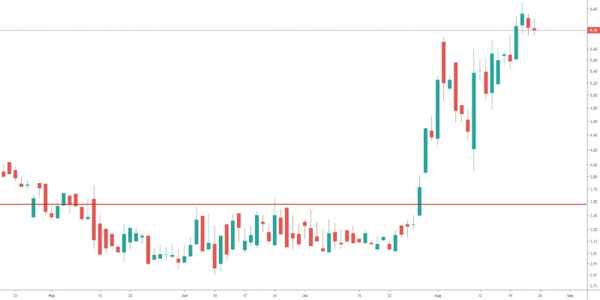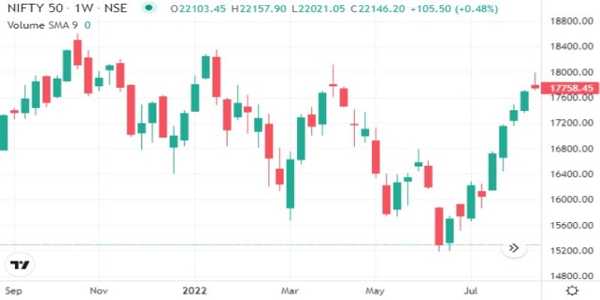What Is The Difference Between A Stock Market Index And An Individual Stock
The stock market can often seem like a maze of financial jargon, but at its core, it revolves around two main types of investment vehicles: stock market indices and individual stocks. Understanding the difference between the two is essential for anyone looking to navigate the world of investing. Whether you're a novice just starting or someone looking to refine your investment strategy, grasping the distinctions between stock indices and individual stocks can help you make more informed decisions. Let's dive into what each term means and how they differ.
What Is A Stock Market Index?
A stock market index is a measurement tool that tracks the performance of a specific group of stocks over time. These indices are used to give investors a snapshot of how a particular segment of the market or the entire market is performing. They are composed of a collection of stocks, often selected based on certain criteria, such as market capitalization, sector, or geographic location.

What Is An Individual Stock?
An individual stock represents a share in the ownership of a single company. When you buy stock in a company, you become a part-owner of that company, and your financial returns will be tied to the performance of that specific business. Individual stocks allow you to invest in particular companies that you believe will grow or perform well in the market.
Key Differences Between A Stock Market Index And An Individual Stock
1. Risk And Diversification
One of the most significant differences between a stock index and individual stocks is risk. A stock market index is inherently more diversified than any single stock because it includes a range of companies. This diversification helps reduce the overall risk because if one company performs poorly, the others in the index can offset those losses. This built-in diversification makes indices a safer choice for those looking for stable, long-term investments with less risk.
In contrast, investing in individual stocks carries more risk because you are putting your money into a single company. If that company’s stock price falls due to poor earnings, market conditions, or external factors, your investment can lose significant value. While this can mean higher potential rewards if the company does well, it also means greater risk. Therefore, those who choose individual stocks must be prepared for more volatility.
2. Performance Measurement
Stock market indices are often used as benchmarks to measure the performance of the broader market or specific sectors. By tracking an index's performance, investors can gauge how the market or a particular industry is doing overall. Indices provide an aggregate view of the market, making it easier to compare the performance of various sectors or market segments.
On the other hand, individual stocks reflect the performance of a single company. If you own Apple stock, for instance, the success of your investment will depend entirely on Apple's performance rather than the broader market. This gives you a more granular view of a company's financial health but lacks the broader perspective that an index provides.
3. Investment Strategy
When you invest in a stock index, you’re essentially betting on the overall growth of the market or a specific sector. Many investors choose to invest in indices as part of a long-term strategy because they offer broad exposure with less hands-on management. Index funds and exchange-traded funds (ETFs) that track indices are popular choices for passive investors because they provide diversification and generally require less active decision-making.
In contrast, investing in individual stocks requires more time and effort. Investors need to research each company thoroughly, looking at financial statements, news reports, industry trends, and other factors that could affect a company’s future performance. Active investors often prefer individual stocks because they offer the potential for higher returns, but this comes with a greater need for analysis and decision-making.
4. Cost And Fees
Investing in stock indices is typically more cost-effective because index funds and ETFs usually have lower fees compared to mutual funds or actively managed portfolios that invest in individual stocks. Since index funds aim to replicate an index's performance rather than actively picking and choosing stocks, they have lower management costs.
On the other hand, buying individual stocks involves paying commissions or transaction fees every time you buy or sell shares. For active traders, these fees can add up quickly. Additionally, managing a portfolio of individual stocks may require more frequent trades, which could incur further costs.
5. Potential For Returns
When it comes to potential returns, individual stocks offer the possibility of higher returns because you’re investing directly in a company’s performance. If a company grows significantly or introduces a successful product, the stock price can rise dramatically. However, this comes with higher volatility, meaning the price can also drop significantly if the company faces challenges.
Stock indices, by their nature, provide more stable but generally more moderate returns. While the market as a whole may trend upward over time, individual indices tend to grow at a slower rate than some of the best-performing individual stocks. This makes stock indices better suited for conservative investors or those looking for steady, long-term growth.

Which Should You Choose: Stock Market Index Or Individual Stock?
The choice between investing in a stock market index or individual stocks largely depends on your financial goals, risk tolerance, and investment strategy. If you’re looking for a safer, more passive approach to investing, stock indices may be the better option. They offer diversification, stability, and low management fees, making them ideal for long-term investors who don’t want to spend too much time analyzing specific companies.
If you’re willing to take on more risk and have the time and expertise to research companies, investing in individual stocks could potentially offer higher rewards. However, this approach requires more active management and a deeper understanding of the market.
Conclusion
In summary, the key difference between a stock market index and an individual stock lies in their composition, risk profile, and the investment strategy required. Stock indices are a collection of stocks that give a broad snapshot of the market, offering lower risk due to diversification and less need for active management. Individual stocks, however, are tied to the performance of a single company and offer more risk but the potential for higher returns. Understanding these differences is crucial to making informed investment decisions, and your choice will ultimately depend on your financial goals, risk tolerance, and investment strategy.





